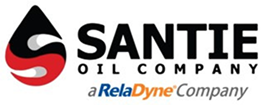
Many manufacturing companies make incorrect lubricant selections because they assume metalworking fluids are a one-size-fits-all coolant, but that isn't the case. Here are a few reasons why you can't use just any industrial lubricants on your equipment.
Not every machine has the same needs
Metalworking fluids behave as coolants; they help to bring the internal temperature of the equipment down as it runs. This helps to prevent the machine from overheating from friction.
However, not all metalworking fluids work well in the same temperatures. During the summer, your equipment may become hotter than average and these high temperatures may reduce a lubricant's viscosity to the point where it's not useful to your machine.
Similarly, during the winter months, your metalworking fluids' viscosity may thicken and cause your equipment to overheat. Many manufacturing companies have been turning to synthetic lubricants for this reason because synthetics often have a consistent viscosity during high or low temperatures.
Different metalworking fluids are used for different processes
There are four major classes of metalworking fluids including straight oil, soluble oil, semisynthetic oil, and synthetics. Many industrial lubricants are mixed with water, except for straight oils, and each lubricant has additives to improve its performance and fluid life.
Each of these four classes of lubricants provides different oil solutions, which is another reason why there's no one-size-fits-all for metalworking fluids.
Straight oils are generally used for processes that require lubrication more than cooling and perform best in slow cut speeds. Soluble oils are also good for lubrication and are better at cooling than straight oils, but they often have poor corrosion control.
Semisynethics provide good lubrication, heat reduction, rust control, and have a longer life. Synthetics have excellent heat reduction, rust control, and lubrication and are also largely unaffected by hard water.
Need oil solutions for your equipment?
Up to 63% of manufacturing companies say they don't conduct staff training on lubricants as regularly as they ought to. This is a major issue because incorrect lubricant selection and management can cause unplanned equipment shutdowns and may even reduce the life the machine.
Santie Wholesale Oil Company has the oil solutions you need and the professional experience to help you find the right industrial lubricants for your equipment. To learn more about our metalworking fluids and industrial supplies, contact Santie Wholesale Oil Company today.
